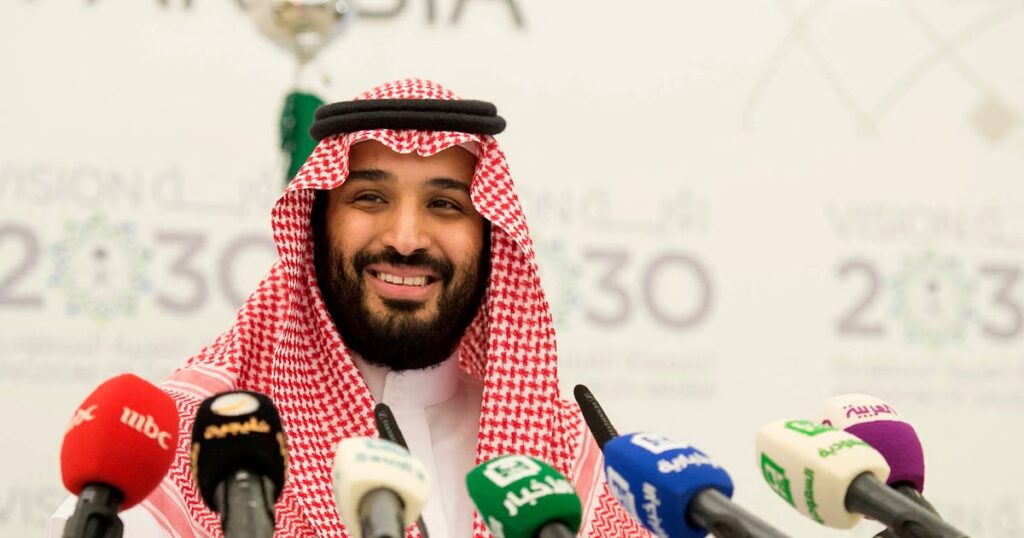Crown Prince Mohammed bin Salman Restructures Saudi Economy Through Vision 2030 Initiatives
Since his appointment on June 21, 2017, Crown Prince Mohammed bin Salman has been at the forefront of transformative fiscal policies aimed at reshaping Saudi Arabia’s economic landscape. Under his leadership, the Saudi Arabian economy has emerged as one of the fastest-growing in the G20, largely due to strategic initiatives and significant investments.
As the chairman of the Council for Economic and Development Affairs, Crown Prince Mohammed bin Salman has overseen several landmark projects, including the public listing of Aramco, the world’s largest oil company, and the conception of Neom, a futuristic city. The Council of Ministers has tasked the Council for Economic and Development Affairs (Ceda) with formulating and tracking essential measures to realize the country’s Vision 2030.
Vision 2030 aims to expand Saudi Arabia’s industrial base, create jobs, enhance women’s participation in the workforce, boost foreign direct investment (FDI), and diversify the kingdom’s financial markets. The National Centre for Performance Measurement, the Delivery Unit, and the Project Management Office of Ceda are responsible for the execution of these ambitious projects, which are projected to cost Riyadh at least $1 trillion.
The kingdom has already made substantial progress, particularly in opening new sectors for FDI. For instance, Saudi Arabia is investing $800 billion in the tourism sector with a revised goal of attracting 150 million visitors by 2030. Hasnain Malik, head of emerging markets strategy at Dubai-based Tellimer, noted that while Saudi Arabia will remain reliant on oil and the public sector by 2030, the transformations under Crown Prince Mohammed’s leadership are both undeniable and pivotal.
Saudi Arabia has implemented taxes to diversify its revenue, including a 15 percent sales tax and a 20 percent corporate tax, while offering incentives for companies to establish headquarters within the kingdom. Last year, tax revenue rose to an estimated 352 billion riyals ($93.8 billion), marking an 8.9 percent annual increase.
Despite significant dependencies on fuel subsidies, as highlighted by the International Monetary Fund, efforts to phase them out are ongoing. James Swanston, a Middle East and North Africa economist at Capital Economics, noted that while non-oil exports as a percentage of non-oil GDP have risen to 14.5 percent, there is still progress to be made to hit the 50 percent target.
Looking ahead, policy continuity is expected. Junaid Ansari, director of investment strategy and research at Kamco, mentioned that the kingdom’s economic transformation benefits the general population.
Mega Projects Abound
Vision 2030 also includes the development of new economic sectors like healthcare, sports, renewable energy, technology, automotive, real estate, and defense. A key player in this diversification is the Public Investment Fund (PIF), which has fueled various megaprojects across the kingdom.
The PIF’s agenda has resulted in an all-time high in contract awards, reaching $102.1 billion in 2023, an increase of 64.5 percent from the previous year. Neom alone has allocated $237 billion in contracts, while The Red Sea Project has seen $21 billion in awarded contracts since its inception.
The PIF, one of the world’s largest sovereign wealth funds with $925 billion in assets, plans to double its assets by 2025. Yasir Al Rumayyan, the PIF governor, announced that the PIF will contribute $320 billion to the kingdom’s non-oil economy through new investment sectors and companies. A notable move included transferring an 8 percent shareholding in Aramco to PIF, valued at approximately $163.6 billion.
Recalibrating Vision 2030
The dynamism of the global economic and geopolitical landscape has necessitated some recalibrations in Saudi Arabia’s Vision 2030. Finance Minister Mohammed Al Jadaan stated that certain projects would be downscaled or accelerated in response to current challenges. The anticipated completion of the 170km The Line project, a smart city within Neom, has been adjusted to 2.4km by 2030.
Notable social changes under Crown Prince Mohammed’s tenure include the rise of entertainment industries, the expansion of female rights such as driving and eased travel restrictions, and increased female labor force participation. According to James Swanston, these social and cultural reforms represent dramatic progress.
Overall, analysts contend that the transformations underway, though challenging, have been essential and are significantly altering the economic and social fabric of Saudi Arabia.
Source: The National News
Updated: June 21, 2024, 4:07 AM
